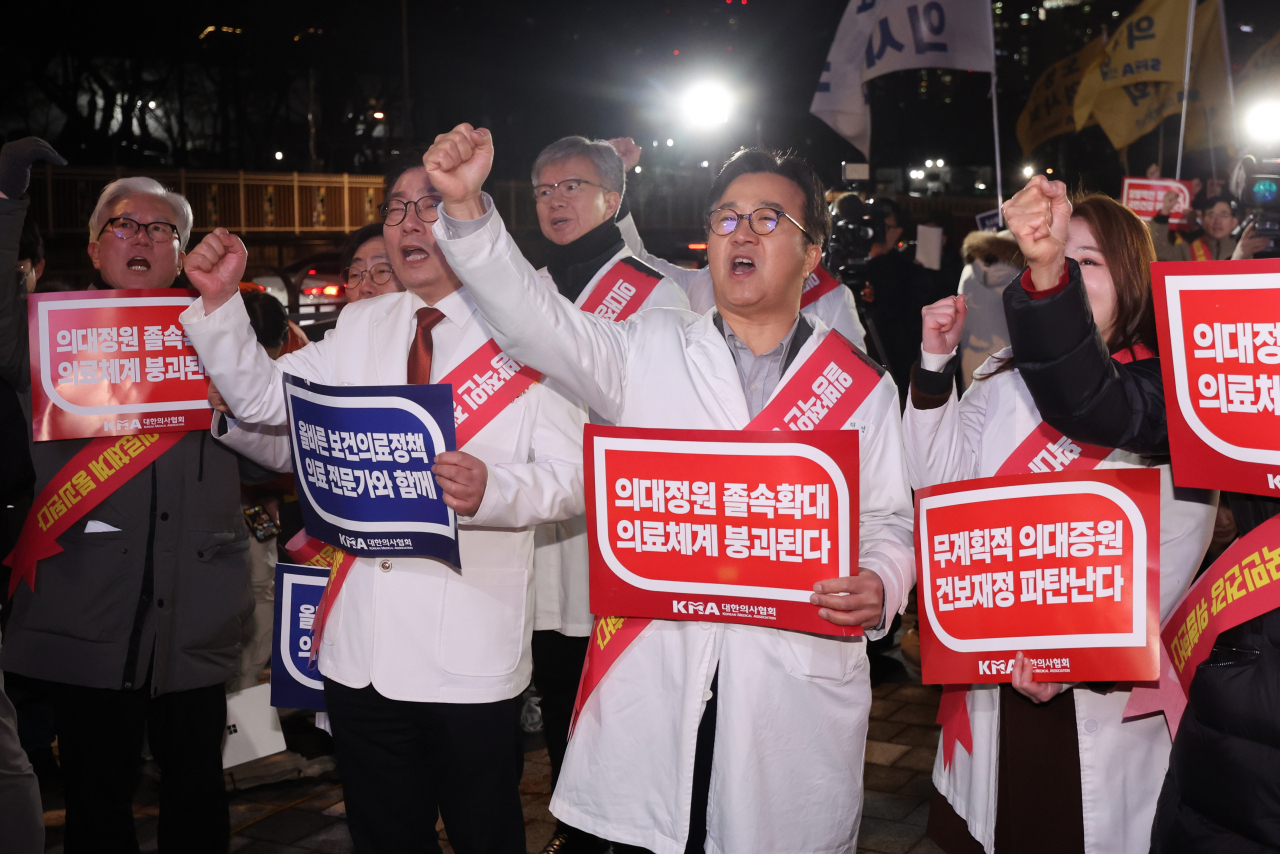Ruling party warns of stern action against looming strike by doctors over quota hike
By YonhapPublished : Feb. 17, 2024 - 15:09

The ruling party warned Saturday of strong measures against a planned strike by doctors next week, stressing that an increase in the number of doctors is key to resolving a shortage and boosting medical services.
Trainee doctors at major hospitals decided to resign early next week and doctors have warned of a large-scale strike and other responses in opposition to the government's decision to add 2,000 to the country's medical school enrollment quota next year.
"The country's medical system is crashing and essential medical services in provincial areas are virtually absent," the People Power Party said in a commentary.
The party said the government will continue efforts to compromise but will sternly deal with strikes by doctors, if any.
Earlier this week, trainee doctors of five major general hospitals in Seoul said they would submit their letters of resignation en masse Monday, intensifying their strike threat over the plan to increase the number of medical students.
They also decided to walk off the job next Tuesday, according to the Korea Intern Resident Association.
The five hospitals -- Asan Medical Center, Samsung Medical Center, Severance Hospital, Seoul National University Hospital and Seoul St. Mary's Hospital -- have played a key role in providing medical care for critical patients.
In response, the health ministry had ordered 221 training hospitals to ban mass leave and maintain essential medical personnel, reaffirming the government's pledge to take stern measures against any collective action by doctors that threatens the safety of patients.
In a bid to block the potential strike, the government has ordered training hospitals to reject such resignation letters from intern and resident doctors.
Unless residents step down legally as doctors, they must return to work if the government issues an administrative order because doctors are classified as essential workers.
Public opinion is also unfavorable to the doctors, according to a survey conducted by the Korean Health and Medical Workers' Union in December, where 89.3 percent of the respondents supported the government's plan and 85.6 percent were against the doctors going on strike.
Despite the government's warning of a stern response, medical students were also pushing for boycotting classes en masse in protest of the medical school quota hike plan.






![[Weekender] How DDP emerged as an icon of Seoul](http://res.heraldm.com/phpwas/restmb_idxmake.php?idx=644&simg=/content/image/2024/04/25/20240425050915_0.jpg&u=)



![[Music in drama] An ode to childhood trauma](http://res.heraldm.com/phpwas/restmb_idxmake.php?idx=644&simg=/content/image/2024/04/25/20240425050929_0.jpg&u=)








![[Herald Interview] Mistakes turn into blessings in street performance, director says](http://res.heraldm.com/phpwas/restmb_idxmake.php?idx=652&simg=/content/image/2024/04/28/20240428050150_0.jpg&u=20240428174656)
